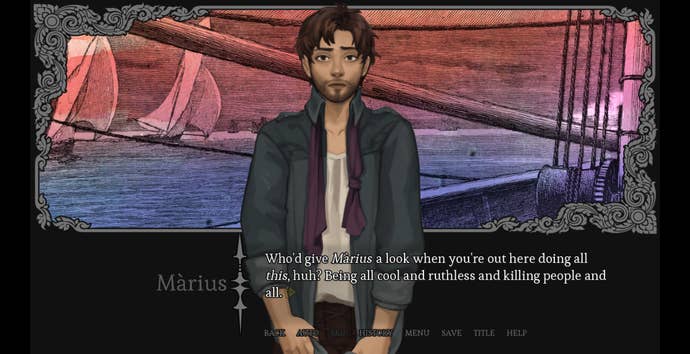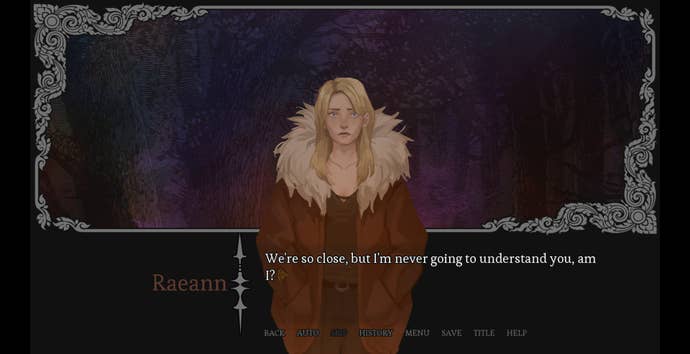Starting again isn’t simply about learning what you missed, and making less-terrible decisions.
That’s my grandiose armchair-Walter Benjamin reading of Amarantus, anyway.
Arik’s closest friend is Mireille: conciliatory, responsible, extremely rich.
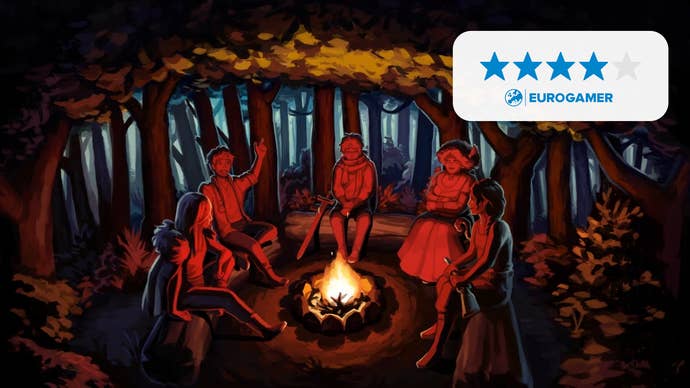
There’s also her tearaway brother Marius, who is puppyish, slender and self-deprecating, with surprising reserves.
Amarantus does quietly amazing things by way of deceptively simple questions of tempo and framing and narrative context.
You never have much say over the nitty-gritty of these scenes, and Amarantus is better for it.

Who should you ask to train with whom?
Who do you send to a nearby town?
What exactly do you plan to do with Caudat, when you encounter him?
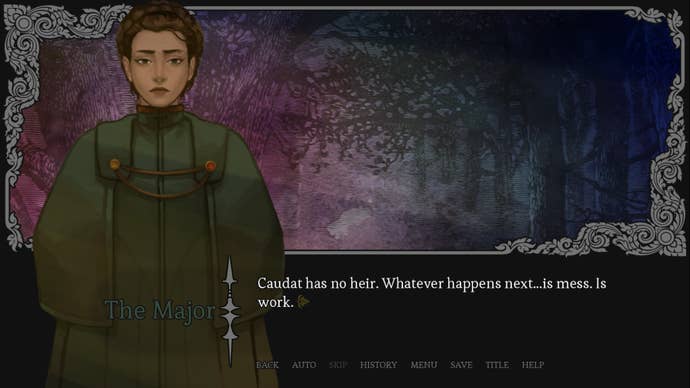
Which budding romantic relationships do you encourage, and whose trust do you betray?
Amarantus accessibility options
Separate master audio, music and ambient sound volume.
Choice of auto text progression and manual skipping.
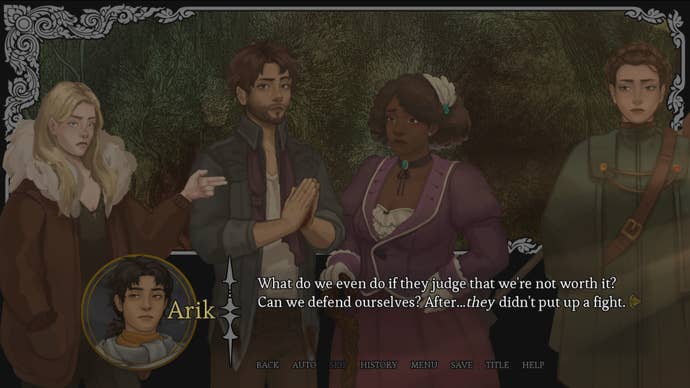
Complete scrollable text log for each playthrough.
And then there’s that theme of recurrence.
